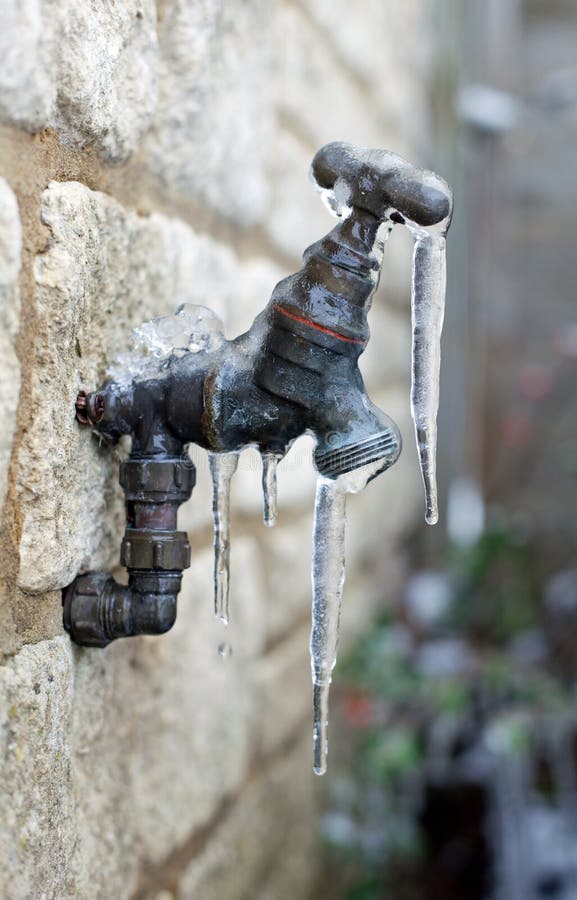Prevent Frozen Plumbing in Cold Weather: Pro Strategies
Prevent Frozen Plumbing in Cold Weather: Pro Strategies
Blog Article
Just how do you actually feel when it comes to How To Avoid Freezing Pipes?

Winter can wreak havoc on your plumbing, particularly by freezing pipelines. Right here's just how to avoid it from occurring and what to do if it does.
Intro
As temperatures decrease, the danger of frozen pipes increases, possibly bring about pricey repair services and water damage. Understanding just how to avoid frozen pipelines is critical for house owners in cold environments.
Prevention Tips
Insulating prone pipes
Cover pipes in insulation sleeves or utilize warmth tape to safeguard them from freezing temperature levels. Focus on pipelines in unheated or exterior areas of the home.
Home heating techniques
Keep indoor rooms effectively heated, especially areas with pipes. Open up cabinet doors to allow warm air to flow around pipelines under sinks.
Exactly how to recognize icy pipelines
Search for reduced water circulation from faucets, uncommon smells or sounds from pipes, and noticeable frost on exposed pipes.
Long-Term Solutions
Structural modifications
Think about rerouting pipelines away from outside wall surfaces or unheated areas. Add added insulation to attic rooms, basements, and crawl spaces.
Updating insulation
Buy top quality insulation for pipelines, attics, and walls. Correct insulation assists preserve constant temperature levels and decreases the risk of icy pipelines.
Safeguarding Outside Pipes
Garden hose pipes and outdoor faucets
Detach and drain garden hose pipes before wintertime. Set up frost-proof faucets or cover exterior faucets with shielded caps.
Recognizing Frozen Pipelines
What triggers pipes to freeze?
Pipelines freeze when exposed to temperature levels listed below 32 ° F (0 ° C) for expanded durations. As water inside the pipelines freezes, it expands, putting pressure on the pipe walls and possibly triggering them to break.
Risks and problems
Icy pipes can cause water supply interruptions, residential or commercial property damage, and costly repair services. Ruptured pipes can flooding homes and cause substantial architectural damages.
Signs of Frozen Pipes
Identifying icy pipelines early can avoid them from rupturing.
What to Do If Your Pipelines Freeze
Immediate activities to take
If you suspect frozen pipes, keep taps open up to ease stress as the ice melts. Make use of a hairdryer or towels soaked in warm water to thaw pipes gradually.
Final thought
Stopping frozen pipelines requires positive measures and fast reactions. By recognizing the causes, indicators, and preventive measures, home owners can protect their pipes throughout cold weather.
Helpful Tips to Prevent Frozen Pipes this Winter
UNDERSTANDING THE BASICS: WHY PIPES FREEZE AND WHY IT’S A PROBLEM
Water freezing inside pipes is common during the winter months, but understanding why pipes freeze, and the potential problems it can cause is crucial in preventing such incidents. This section will delve into the basics of why pipes freeze and the associated problems that may arise.
THE SCIENCE BEHIND FROZEN PIPES
When water reaches freezing temperatures, it undergoes a physical transformation and solidifies into ice. This expansion of water as it freezes is the primary reason pipes can burst. As the water inside the pipe freezes, it expands, creating immense pressure on the walls. If the pressure becomes too great, the pipe can crack or rupture, leading to leaks and water damage.
FACTORS THAT CONTRIBUTE TO PIPE FREEZING
Low Temperatures: Extremely cold weather, especially below freezing, increases the risk of pipes freezing. Uninsulated or Poorly Insulated Pipes: Pipes located in unheated areas, such as basements, crawl spaces, or attics, are more prone to freezing. Insufficient insulation or lack of insulation altogether exacerbates the problem. Exterior Wall Exposure: Pipes running along exterior walls are susceptible to freezing as they encounter colder temperatures outside. Lack of Heating or Temperature Regulation: Inadequate heating or inconsistent temperature control in your home can contribute to frozen pipes. PROBLEMS CAUSED BY FROZEN PIPES
- Pipe Bursting: As mentioned earlier, the expansion of water as it freezes can cause pipes to burst, resulting in significant water damage.
- Water Damage: When pipes burst, it can lead to flooding and water damage to your property, including walls, ceilings, flooring, and personal belongings.
- Structural Damage: Prolonged exposure to water from burst pipes can compromise the structural integrity of your home, leading to costly repairs.
- Mold and Mildew Growth: Excess moisture from water damage can create a favorable environment for mold and mildew growth, posing health risks to occupants.
- Disrupted Water Supply: Frozen pipes can also result in a complete or partial loss of water supply until the issue is resolved.
WHY CERTAIN PIPES ARE MORE PRONE TO FREEZING
- Location: Pipes located in unheated or poorly insulated areas, such as basements, crawl spaces, attics, or exterior walls, are at higher risk of freezing.
- Exterior Pipes: Outdoor pipes, such as those used for irrigation or exposed plumbing, are particularly vulnerable to freezing as they are directly exposed to the elements.
- Supply Lines: Pipes that carry water from the main water supply into your home, including the main water line, are critical to protect as freezing in these lines can affect your entire plumbing system.
- Underground Pipes: Pipes buried underground, such as those connected to sprinkler systems or outdoor faucets, can be susceptible to freezing if not properly insulated.
https://busybusy.com/blog/helpful-tips-to-prevent-frozen-pipes-this-winter/

We had been made aware of that editorial about How to Prevent Your Pipes From Freezing from a friend on another blog. Remember to pause to share this write-up if you enjoyed reading it. I thank you for your readership.
Here Report this page